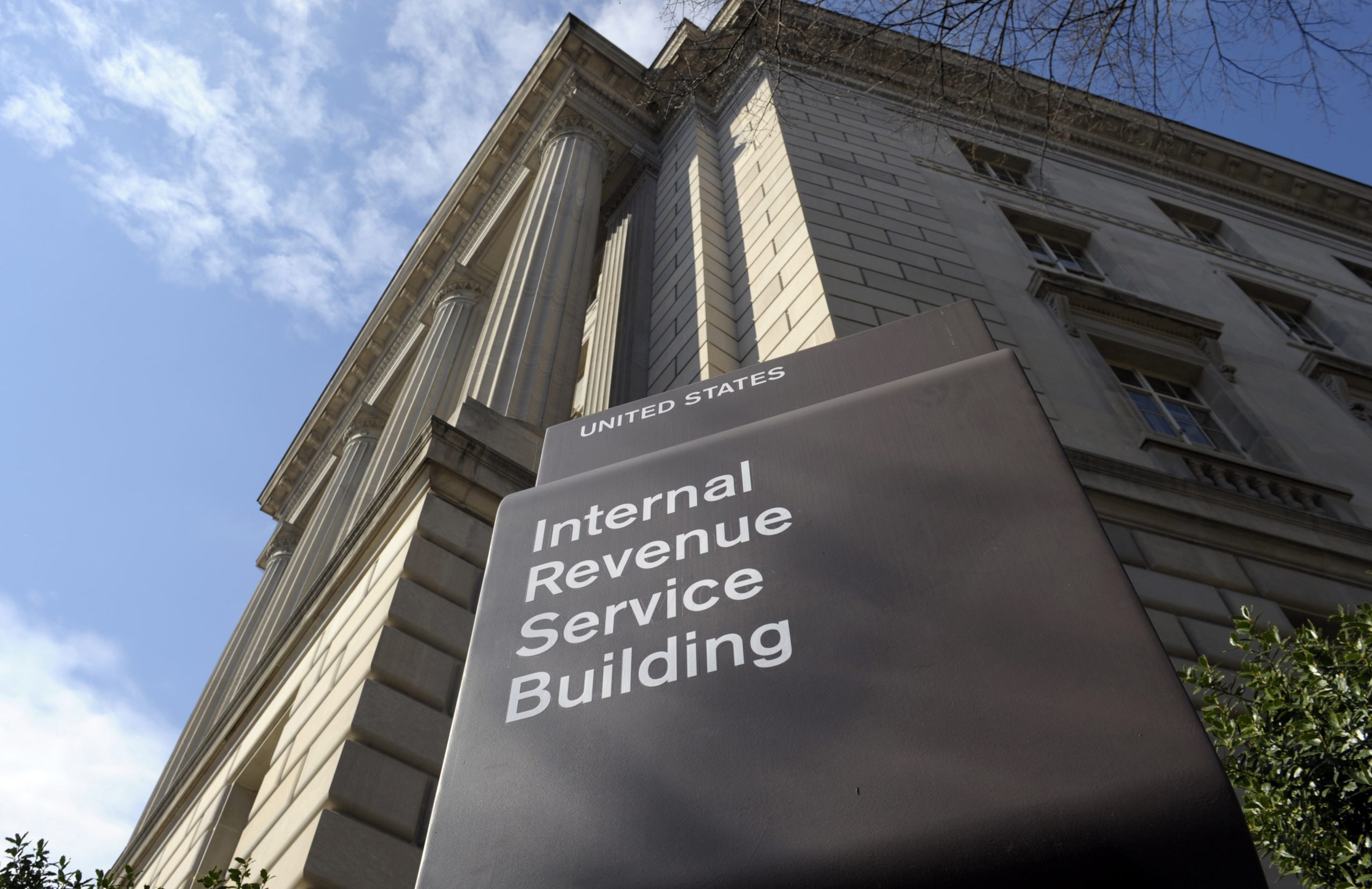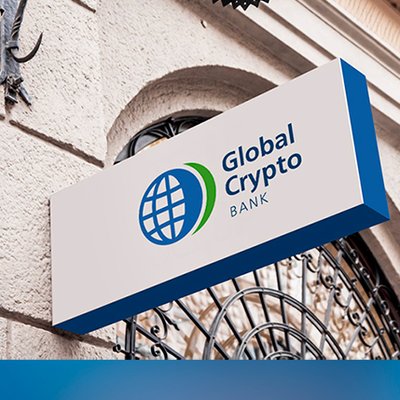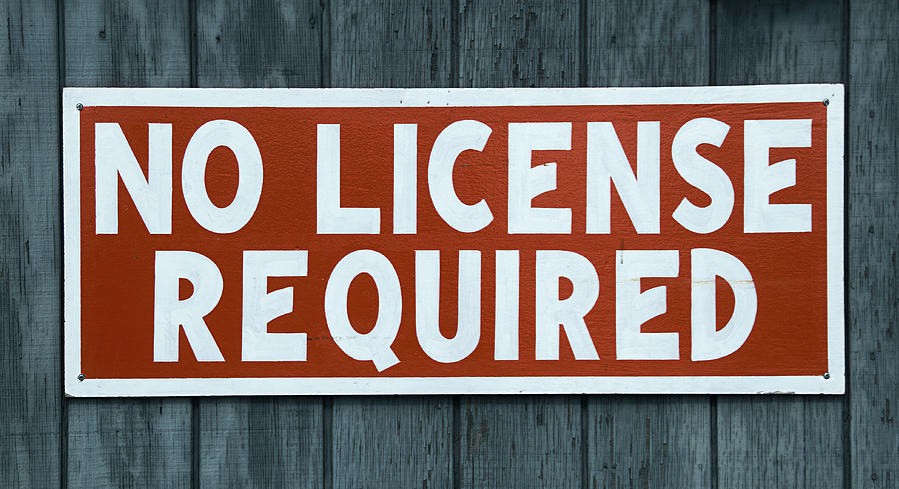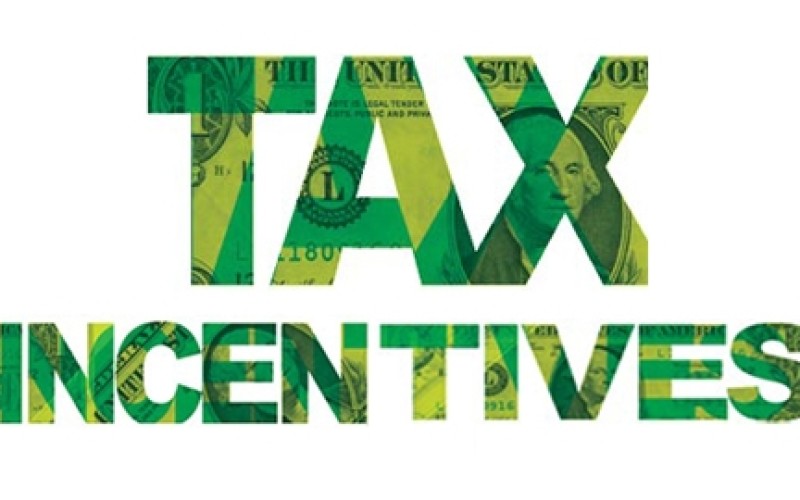In this article, I will focus on where to start a cryptocurrency exchange in 2018. That is, where to incorporate a new cryptocurrency exchange. Which countries are friendly to startup cryptocurrency exchanges and why you should consider each based on your business model.
Countries are not listed in any particular order. You should select your jurisdiction of operation based on your long-term objectives, business model, and target markets. You should also consider whether you wish to have a formal license or not.
I’m starting from the position that regulation is good for cryptocurrency in 2018. Banks are pushing out crypto exchanges and crypto investors because of concerns about compliance. If a bank is confident that an exchange is will run a clean and compliant business, and follow the same AML and KYC procedures as an FX or brokerage firm, they are more likely to open accounts for you.
It may be possible to start a crypto exchange in 2018 without a license. But, by 2019 or 2020, I expect everyone will be licensed and regulated. Some software vendors include licensing in their turnkey package. I suggest you buy your core software from a company that can provide this service if and when it becomes necessary.
Some of my comments below are speculative. They come from meeting with experts in various countries and with regulators around the world. But, in some cases, no licenses have been issued and thus the government’s resolve has not been tested.
For example, the lowest cost jurisdiction for a licensed exchange appears to be Belize. However, no licenses have yet been issued. I am hopeful that these will be made available. But, until one is approved, I’m just speculating.
Estonia is also low cost. Plus, this country is a very tech savvy with their e-residency program. The problem is that the banks in Estonia won’t open an account for an Estonia licensed exchange if that exchange is owned by foreigners. So, how valuable is the license?
For more information on how to start an international or offshore cryptocurrency exchange, please see: How to Build an International Cryptocurrency Exchange.
Without any more adieu, here are my thoughts on where to start a cryptocurrency exchange and the best countries from which to operate that exchange.
Mexico
Mexico is one of the more interesting jurisdictions to start a cryptocurrency exchange in 2018. This country of 140,000 million has a few exchanges in operation and is just beginning to regulate.
The exchanges in Mexico are currently self-regulating with reasonable KYC and AML procedures in place. The more a client deposits into their account, the more the exchange will want to know about them.
A client can play around with the system with a few dollars. This usually required a Mexican phone number. Once they connect to a local bank account or begin making sizable withdrawals, they will need to prove their identity.
And Mexico has the most efficient cash transaction system in the world for cryptocurrency… yes, in the world!
Users can walk into any of 140,000 convenience stores in Mexico and make a cash withdrawal or deposit into their cryptocurrency account. Take cash and a code to the cashier and your deposit will show on your account in minutes. Buy a debit card from the store, convert your BTC to Pesos, and transfer those pesos into your card. You can then take a cash withdrawal or use the card just about anywhere.
We expect this period of self-regulation of cryptocurrency exchanges to last 6 to 12 months. It might be longer depending on what happens in the Presidential elections this year. Legislation to regulate exchanges has been passed but not implemented yet.
Like many countries, the Mexican Central Bank announced that bitcoin and cryptocurrencies are not considered currencies and are not backed by the government nor laws. However, the government also said that crypto is not illegal and that they’ll allow self-regulated exchanges to operate while laws are being implemented.
The government also said they won’t step in to regulate ICOs. They warned consumers to avoid high-risk investments, but haven’t yet taken steps to protect consumers. The government hinted that ICOs could be regulated and only available only to accredited investors in the future.
When new laws and regulations are implemented, which they will be, expect formal compliance and some level of corporate capital to be required. New firms should be working closely with local counsel to build up reserves and put AML and KYC systems in place before applying for a license.
Chile
Everyone’s been talking about Chile as a great cryptocurrency center… as the next chilecon valley. And, that was true until April of 2018. Over the last few days, all the banks in Chile have closed the accounts of exchanges, ICOs, and anyone doing business in crypto. Both commercial banks and government banks have closed the accounts of exchanges.
Most blame the loss of banking services on a lack of clear regulation of cryptocurrency exchanges in Chile. If and when regulations are passed, as they have been in Mexico, look for business to return and banking to be made available.
- Regulations have been passed in Mexico. They have not been implemented by the regulators yet. Thus, exchanges are in a period of self-regulation.
In my opinion, much of these problems come from a lack of regulation. The banks and government regulators don’t know what to do, so they take extreme steps to reduce their risks. Banks close accounts because the risk to the bank exceeds the value of the account. Risk comes from uncertainty. So, regulation in Chile will reduce or eliminate the risk.
Cayman Islands
The Cayman Islands are the jurisdiction for cryptocurrency investment funds. Cayman has long been a leader in large sophisticated hedge funds and it continues in that reputation today. If you plan to raise a $100 million dollar fund, Cayman is the place to do it.
Cayman has also been the country of choice for some of the largest ICOs. However, this has lead to a glut of ICOs and underfunded low-quality projects hoping to take root in the islands. I suggest that only the very best funded and highest quality ICOs should consider Cayman. See: The Offshore ICO Scam and Cayman Islands Corporations.
The same can be said for anyone attempting to launch an exchange in Cayman. The licensing process will be intense and you must have a solid compliance program and a team on the island. I estimate this license will cost $150,000 and take 6 to 12 months.
Some will find it easier to operate in Cayman as a crypto brokerage rather than a crypto exchange. Exchanges exchange money from one currency to another, as in exchanging a Bitcoin for $7,000 USD. Brokerages enable traders to place long or short bets on the BTC/USD price. For an example of such a brokerage, see: www.Xenia.com.
Belize
It appears that regulators in Belize might allow an exchange to operate under a money management license. This license is issued by the International Financial Services Commission in Belize or the IFSC.
Corporate capital for this license is $50,000 and the cost is between $18,000 and $25,000 with filing fees. Annual fees, including the local agent, are about $5,000.
You will also need a 5-year business plan, resumes and police reports for all shareholders, officers and directors, and proper KYC and AML procedural manuals. The applicant must prove to the regulators that they have the experience and expertise to run a clean and compliant cryptocurrency exchange from Belize.
No exchange has been approved in Belize yet, but this could become the path forward. Then again, regulators might shut this door in the next few months.
Costa Rica
Historically, Costa Rica has been open to new high tech businesses. For example, Costa Rica was the center of the online gaming industry in the early 2000s. Just about every sportsbook and casino was based in Costa Rica for a time.
Also, San Jose, Costa Rica has a number of Bitcoin ATM machines and vendors that accept crypto. And Costa Rica has its own cryptocurrency, Pura.
The primary exchange selling to residents of Costa Rica is SatoshiTango. They have banking Portugal and provide services throughout Latin America.
Like Mexico, the Costa Rican Central Bank issued a statement that bitcoin and cryptocurrencies are not considered currencies and are not backed by the government. However, cryptocurrencies are not illegal.
Costa Rica does not offer a cryptocurrency license and no legislation is pending. San Jose would be an interesting low-cost city from which to operate a self-regulated exchange. You might combine operations in Costa Rica with a license from Estonia and use 3rd party providers or OTC / CTC systems to fund accounts and trade currencies until you can negotiate a correspondent bank account.
Estonia
Estonia is one of the lower cost licensing jurisdictions. You should expect to pay 10,000 to 20,000 euros for a cryptocurrency exchange license from Estonia.
An application can be in English or Russian. Criminal history reports and background information must be provided by all officers, shareholders, and directors. Also, you must provide a detailed business plan, KYC documents, AML system, and financial statements.
Also, Estonia is a member of the European Union. This means that businesses incorporated and operated from Estonia are portable throughout the Union. Note that I’m talking about business operated from Estonia, not those operated abroad through the e-residency program.
If the business is to be operated from outside of Estonia, and most of the owners are foreigners, it will be impossible to get a bank account in Estonia. While you will get a license from Estonia, you won’t get a bank account.
Malta
Like Luxembourg, Malta made a splash by issuing a license to a big name, Binance. Malta has been working hard to bring stability to the industry ever since.
Malta’s government launched the Malta Digital Innovation Authority in February 2018 in order to provide legal clarity for companies developing Blockchain technologies, cryptocurrencies, and Initial Coin Offerings (ICO). Whenever the government is working to facilitate an industry, it’s a country you should consider.
That is to say, Malta’s government is reportedly developing a broad national strategy that will see the government embrace bitcoin and blockchain innovation to promote and adopt the technology.
Like Costa Rica, Malta was a leader in online gambling. They passed the first legislation in 2004 and have been a major player in Europe since then. Malta hopes to duplicate this success in crypto by offering the most efficient legal framework in the region.
At this time, and because Bitcoin is not deemed to be a regulated instrument under MiFID, companies dealing in Bitcoin are not required to apply for a license with the Malta Financial Services Authority (MFSA). However, the rapid growth of the industry will likely to necessitate greater regulatory oversight in the mid to near term. Expect Malta to issue licensing procedures soon.
For pending and planned legislation in Malta, see Malta Becoming a Crypto Hub.
Switzerland
The bottom line is that Switzerland is the best cryptocurrency jurisdiction in Europe. If you have an unlimited budget, and you don’t mind paying about 12 to 18% in corporate tax, you want to be in Switzerland. If you want to run a top tier exchange that markets into the European Union, you should be in Switzerland or Malta.
Switzerland and the United States dominated ICOs in 2017. Swiss ICOs raised $550 million vs the United States at $580 million from January to October of 2017. The next largest was Singapore at $184 million.
Switzerland has two popular coins. The Swisscoin, which is a token focused on Swiss investors and SwissRealCoin, which is a token based on Swiss real estate. There have also been crypto banks and crypto wealth management firms opening in Switzerland.
Bottom line, Switzerland is dominating financial services in and around cryptocurrencies and blockchain.
If you wish to set up in Switzerland, I suggest you open in Crypto Valley, which is in the city of Zug. This canton has the lowest taxes in the country and has been a bastion for offshore corporations for decades.
The Crypto Valley Association is an independent, government-supported association much like LHoFT in Luxembourg. It was “established to take full advantage of Switzerland’s strengths to build the world’s leading blockchain and cryptographic technologies ecosystem.”
As a general rule, all companies in Switzerland performing financial activities are required to receive an authorization for their operations from the Swiss Financial Market Supervisory Authority (FINMA). However, cryptocurrency businesses are not currently required to register with FINMA because crypto is not seen as a “currency.” We expect companies to be required to register soon.
Companies performing bitcoin transactions must still comply with specific regulations provided by the Swiss Anti-Money Laundering Act. Therefore, exchanges in Switzerland are self-regulating much like those in Mexico awaiting formal regulation, but failure to follow AML rules can result in major penalties.
Most exchanges are seeking banking relationships in Europe these days. Even those focused on Latin America and Asia are banking in the EU. In order to get a quality bank account, crypto exchanges are forming Swiss corporations in Zug, setting up an office there, complying with Swiss rules, and then applying for banking in Europe.
Keep in mind that these Swiss companies will need to continue to comply with Swiss laws to keep their bank accounts. This means they’ll need to keep up with new laws and secure a license if one becomes available.
Some ICOs are regulated in Switzerland and must register. Those who sell an asset token, and not a utility or payment token, are regulated. This is because an asset token is considered a security in Switzerland. See: Guidelines for initial coin offerings (ICOs) Published 16 February 2018, a PDF download from the Swiss regulator finma.
For more on Switzerland, see Switzerland embraces cryptocurrency culture from the Financial Times.
We’ll be happy to assist you with an ICO or to set up a cryptocurrency exchange in Switzerland with banking in Europe. For a quote and more information, please contact us at info@premieroffshore.com or call us at (619) 550-2743.
Luxembourg
The two international top-tier crypto jurisdictions in Europe are Switzerland and Luxembourg. Exchanges in Luxembourg are governed by the CSSF and must follow the same strict rules as other non-bank financial institutions. Cryptocurrency exchanges in Luxembourg are referred to as electronic money institutions.
With Bitstamp moving to Luxembourg back in 2016, this country cemented its place as a top crypto nation in the European Union. Since then, a number of high profile exchanges, such as BitFlyer, have moved to Luxembourg.
Cryptocurrency exchanges in Luxembourg operate under the payments institutions license and report under the electronic money institutions statutes. In most cases, your minimum capital will be 350,000 euros.
“Electronic money” is defined in Luxembourg as something of monetary value representing a claim against the issuer which is:
- stored in electronic format, including on magnetic media, and
- issued against the remittance of funds with the goal of making payments, and
- accepted by an individual or organization other than the issuer of the electronic money.
In addition to issuing electronic money, these companies may supply payment services, grant loans (under certain conditions) linked to payment services, supply operational services, and other services closely linked to the issuing of electronic money or to the supply of payment services, manage payment systems, and undertake commercial activity.
In our experience, setting up a licensed exchange in Luxembourg is an expensive endeavor requiring many months. Typical legal costs are $150,000, including your promotor / project lead, an attorney in Luxembourg, and securing the support of LHoFT.
Japan
Japan has the most advanced crypto laws on the planet. If you want to operate from a top tier country with a strong demand for bitcoin, and the most advanced laws, then consider Japan.
As I said above, I consider regulation a positive force in the industry. It gives crypto exchanges and, possibly, more importantly, banks, confidence in how to deal with the industry. It creates a level playing field on which everyone can compete. It ensures only compliant and well-run cryptocurrency exchanges are allowed to operate in the country.
The Revised Payment Services Act took effect on April 1, 2017. Since that time, Japan has had the most complete regulations for cryptocurrency transactions. These laws are administered by the Financial Services Authority (FSA).
The minimal capital amount is JPY 10 million ($93,500 USD), but more than JPY 50 million (about $500,000 USD) is recommended. Strict KYC and AML policies must be in place, you must have an external auditor, and a physical office is required.
And, keep in mind that these regulations apply to anyone running an exchange from Japan and anyone selling into Japan. Firms selling into Japan without a license have been shut down and sanctioned. For example, Binance secured a license in Malta after being warned by Japan for operating without a license.
Expect Japan to be used as a model by major markets as compliance and regulation rolls through the industry.
Australia
Australia licensed three cryptocurrency exchanges since new regulations came into effect April 3, 2018. All exchanges operating in the country have until May 14, 2018, to get in compliance and be approved for a license.
After spending several years battling a confusing and at times contradictory regulatory landscape, exchanges doing business in Australia can now take advantage of an official program like those available in Japan and South Korea. A formal licensing scheme should make banking easier and eliminates the risk of inadvertently running afoul of government KYC and AML policies.
Exchanges operating in Australia now must comply with the following:=
- customer identification and due diligence
- adopting and maintaining an AML/CTF program—this includes identifying, managing and lessening money laundering and terrorism financing risk
- suspicious matter reporting
- reporting of cash transactions of $10,000 or more.
- record keeping
In order to apply for a license, applicants must have an office in Australia, an auditor, business plan, and complete compliance systems in place. Only those with a solid team and expert compliance systems will be granted a cryptocurrency license in Australia.
The license required to operate a crypto exchange in Australia is the Financial Services License. In most cases, capital required will be $50,000 plus a 5% reserve based on the size of your exchange. Various ratios apply after $100 million in assets and capital reserves shall not exceed $100 million. It appears that most applicants should have $10 million before they file an application. See Pro Forma PF 209 (a PDF file).
Philippines
The Philippines issued two cryptocurrency exchange licenses in August of 2017 and has been active in the industry since that time. Exchanges wanting to offer services throughout Southeast Asia are usually setting up shop in the Philippines or Thailand. The more advanced regulations are in the Philippines.
Cryptocurrency exchanges in the Philippines are governed by Circular 944, 2017. There are currently 29 applications pending with the central bank. How many actually want to sell into the Philippines is unclear.
BSP Governor Nestor Espenilla, Jr. suggested they “have an open-minded approach to fintech (financial technology). This means that we take a very active role in ensuring that our policies provide opportunities for innovation.”
“Today, there are two virtual currency exchangers registered with the BSP and several more are under evaluation,” the central banker emphasized.
Many of the exchanges moving to the Philippines are from China. They’re not focused on the local market, which is only about $8.8 million per month. They’re looking at the region, possibly including Chinese clients who have found a way to get around the great firewall.
Thailand
Bangkok was shaping up to be a cryptocurrency center of Southeast Asia. Exchanges were opening there and being welcomed by the banks.
Then it all went south. Banks turned against cryptocurrency and began stuttering accounts. This began with the government bank and the rest followed suit.
My guess is that the fragile government of Thailand saw risk in allowing a means of exchange which they didn’t control. For this reason, I expect the exchanges to be forced out of Thailand.
Singapore
Singapore is one of the last major banking centers that allow for unregulated or self-regulated cryptocurrency exchanges. As of February 2018, the government warned of the risks of cryptocurrency but said it would not regulate the industry.
Then, in March, the government indicated they might take steps to protect investors. Experts think that Singapore will go the way of Switzerland and require KYC, AML and compliance standards for cryptocurrency exchanges. They might not require a license, but they will require record keeping and standards of care.
Of the exchanges opening in Asia, those looking for a low cost and low overhead solution are focusing on the Philippines. Those looking for better banking and to be within a major financial center, are opening in Singapore.
Gibraltar
Gibraltar is hoping to become the headquarters of all things blockchain. It appears that most legislation is aimed at the technology behind cryptocurrency and ICOs and not the tokens or currencies themselves. Thus, you might say that Gibraltar is taking a longer-term view by focusing on the underlying technology and using its portability into the EU to add value.=
A notification on the regulator’s website states that as from January 1, 2018, any use of distributed ledger technology for storing or transmitting value belonging to others will need to be authorized by the Commission. By the way, the following entries: “Initial Application Assessment Fee”, “Application Fee”, “Supplementary Fees”, “Annual Fees”, “Further Fees”, populate a list tucked in between the “Principles” and the “Frequently Asked Questions” sections.
Gibraltar hopes to take some ICO business away from Switzerland and offers lower cost and more definitive regulation that its much larger neighbor. For more, see it’s Statement on Initial Coin Offerings.
Belarus
Belarus issued regulations on December 8, 2017 and this law took effect on March 28, 2018. See: Questions and answers on Decree No. 8. This law creates a tax holiday and a FinTech campus called High Technology Park (HTP) for blockchain and crypto businesses.
Any member of the park may run an ICO without restriction. In addition, they may issue ICOs on behalf of others. Most of these ICOs are intended for offshore and EU investors.
A cryptocurrency exchange registered at HTP should have capital of $100,000 to $500,000 in a local bank. The amount will depend on the size of your operation.
Most interesting and unique, HTP companies can act as investment funds and perform cryptocurrency investing legally and with banking support. No need to incorporate your fund in a high-cost jurisdiction such as Cayman if you’re operating from Belarus.
The negative with Belarus compared to Malta is that Belarus is not a member of the European Union. Malta is a member state and its businesses may be “ported” throughout the EU.
The benefit of Belarus over Estonia is that banks in Belarus accept cryptocurrency exchanges. You’ll get an exchange license in Estonia, but not a bank account.
See also Belarus To Become World’s Best Jurisdiction For Cryptocurrencies, ICOs And Smart Contracts.
Conclusion
I hope you’ve found this article on where to start a cryptocurrency exchange to be helpful. For assistance building a new international exchange, please contact us at info@premieroffshore.com or call us at (619) 483-1708. We’ll be happy to assist with licensing, compliance, software, and a turnkey solution for your cryptocurrency exchange.




















